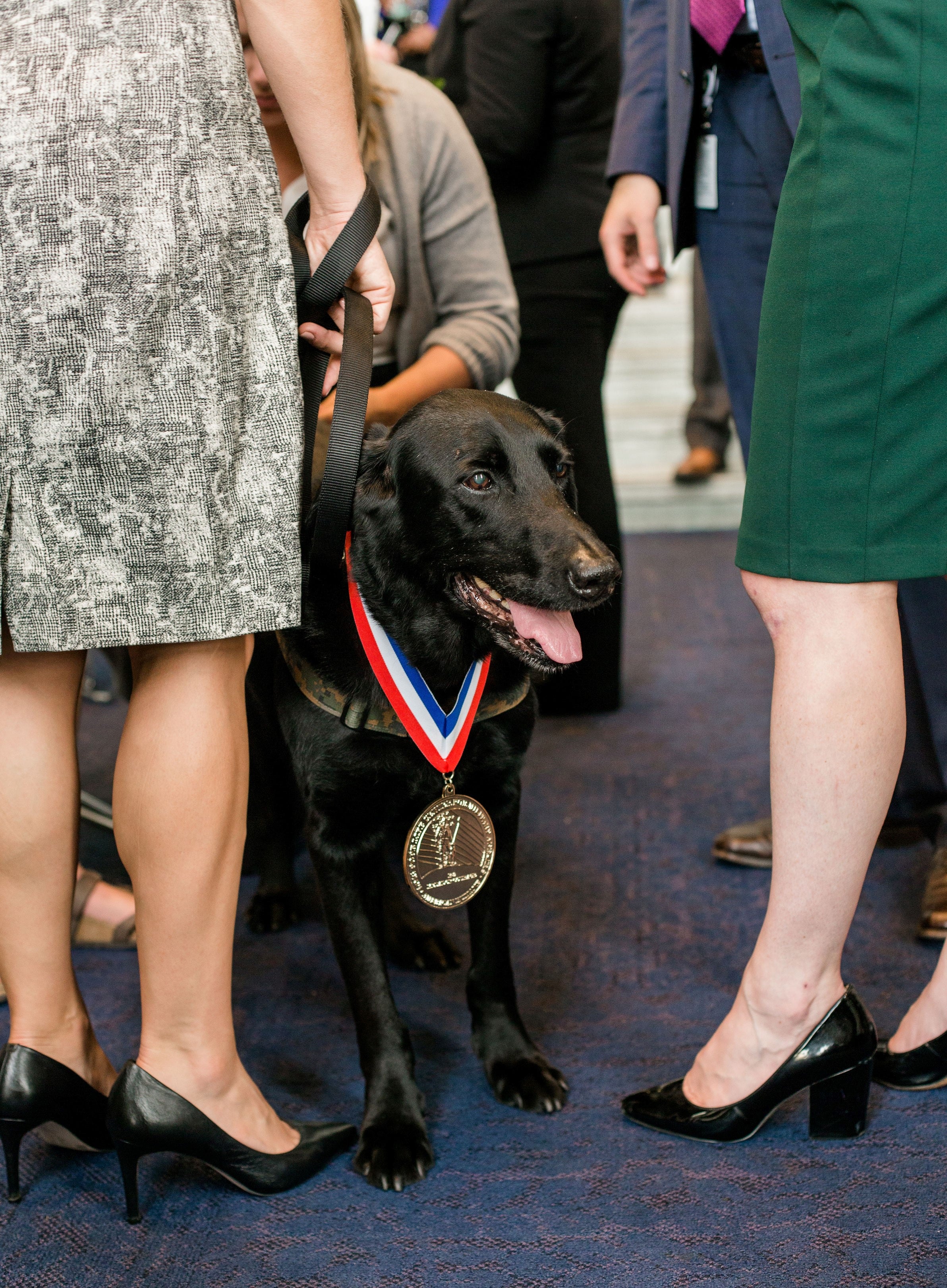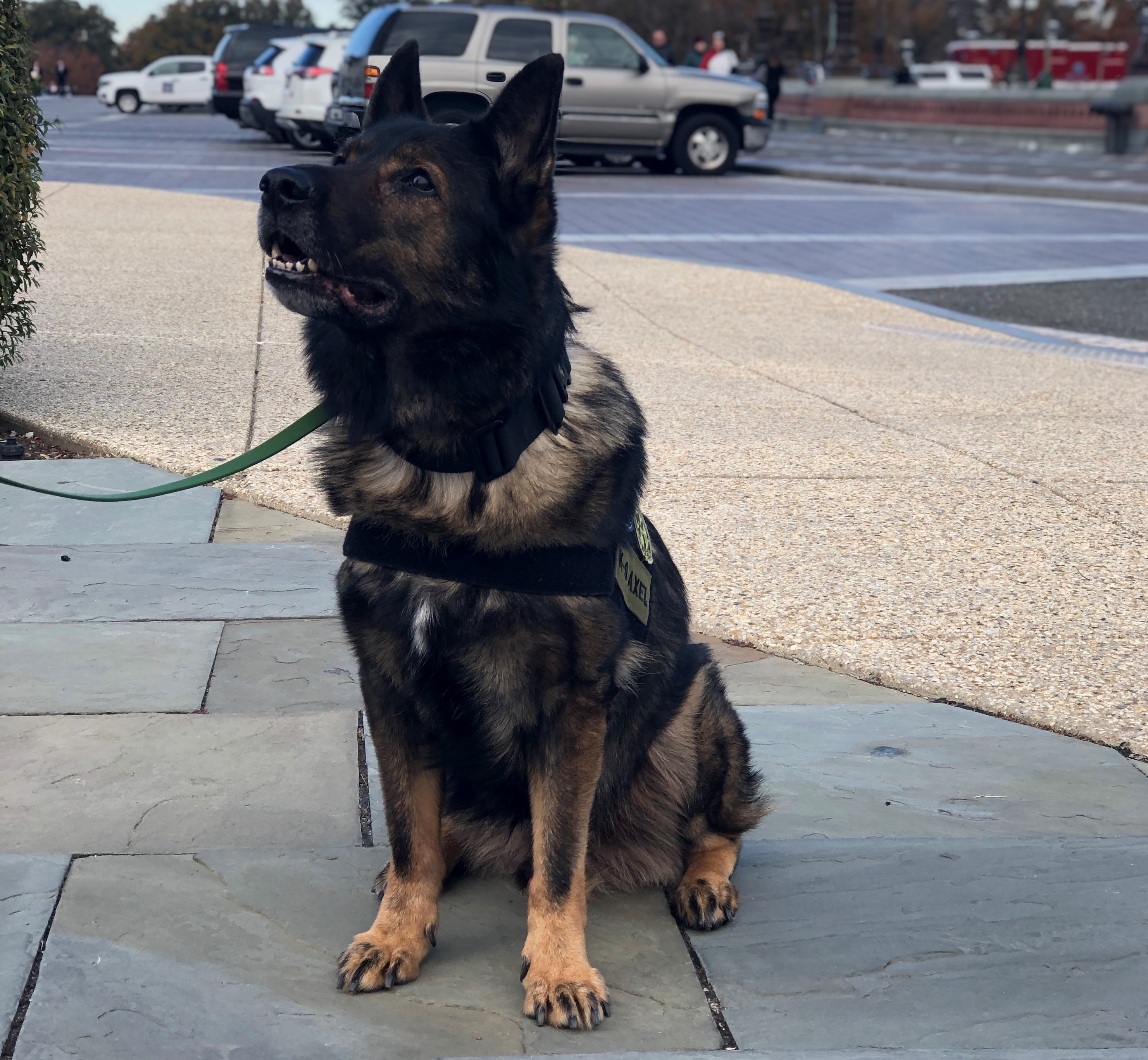It costs an average of $3,000 per year to pay for retired military working dogs’ medical expenses, according to Rep. Ron Wright.
But instead of having the K-9’s caretakers foot the bill, White wants to establish a grant program that provides financial assistance to nonprofit organizations and individuals caring for retired working dogs who served in the military or other federal agencies.
“These dogs assist our federal government in ways that no man or machine could, and it’s unacceptable to me for them to live with inadequate medical care or even be euthanized in some cases after sacrificing so much for our country,” Wright, a Republican from Texas, said during a press conference on Capitol Hill Thursday.
Wright said stories like those of Conan, the Belgian Malinois military working dog injured during the commando raid to take down Islamic State leader Abu Bakr al-Baghdadi, motivated him to introduce the legislation.
“This bill helps ensure these heroes are well taken care of during retirement, and that their need for medical care never prevents them from receiving a loving, forever home,” Wright said.
The grant program is designed to cover costs incurred from veterinarian appointments, medical procedures, diagnostic tests and medications.
Wright noted that many of the caretakers who have adopted retired working dogs often depend on non-profit organizations such as Project K-9 Hero, who provides dogs accepted into their program with up to $3,000 annually for their medical expenses. Separately, the nonprofit also covers their food costs.
Although a dollar amount has not been set, Wright’s office said that the goal was to pour $5 million over the course of five years into the grant program.
One of the dogs that Project K-9 Hero has worked with — Sgt. Yeager — was slated to attend the press conference Thursday, but fell ill Wednesday night and was unable to make the trek to Washington.

Yeager, 12, is a black lab who served in combat tours in Iraq and Afghanistan with the Marine Corps, participating in more than 100 combat patrols as an improvised explosive detection K-9.
He earned the Purple Heart award after an IED explosion in Afghanistan took out a chunk of his ear in 2012, and more recently was awarded the K-9 Medal of Courage in September.
Yeager was adopted by a Marine Corps family after he left military service. Project K-9 Hero said they covered 100 percent of Yeager’s medical bills stemming from post-traumatic stress disorder and other health complications, and will do so for the rest of his life.
Although Yeager couldn’t attend the legislation’s unveiling, another member of Project K-9 Hero’s program was there: Axel, a German shepherd who worked for the Bureau of Alcohol, Tobacco, Firearms and Explosives and participated in 200 high-risk operations all over the U.S.

Axel, 10, retired in 2017 amid health complications, including pannus and megaesophagus, and has since been diagnosed with lung cancer, according to his caretaker. Altogether, his medical expenses total more than $500 each month.
“This act will really help us do our job to make sure that no military working dog or police K-9 hero actually goes without medical care,” said Jason Johnson, founder of Project K-9 Hero.
“These K-9 heroes spent their career protecting us, so I want to spend the rest of mine protecting them,” Johnson said.
In addition to Project K-9 Hero, American Humane and Mission K9 Rescue have also backed the legislation.
Cosponsors of the measure include Republican Reps. Matt Gaetz, of Florida; Greg Pence, of Indiana; Randy Weber, of Texas; John Carter, of Texas, and Gus Bilirakis, of Florida.
One can adopt a retired military working dogs through a program at Joint Base San Antonio-Lackland. Civilian law enforcement agencies are given top priority in the adoption process, followed by previous handlers, and then the general public.





